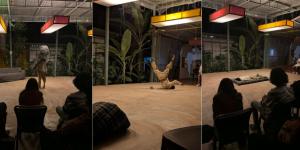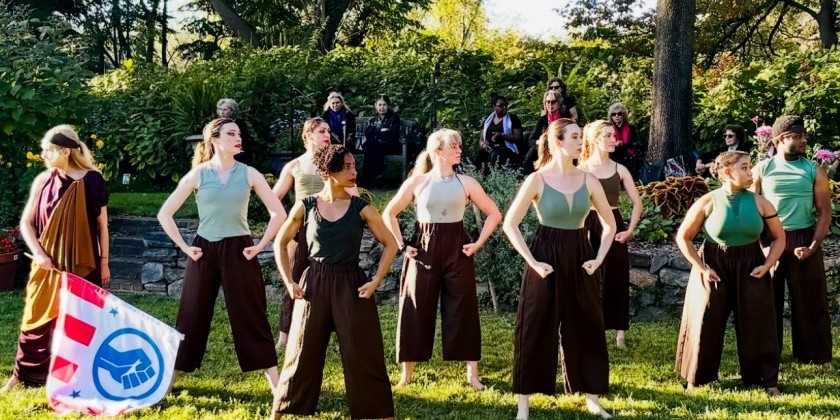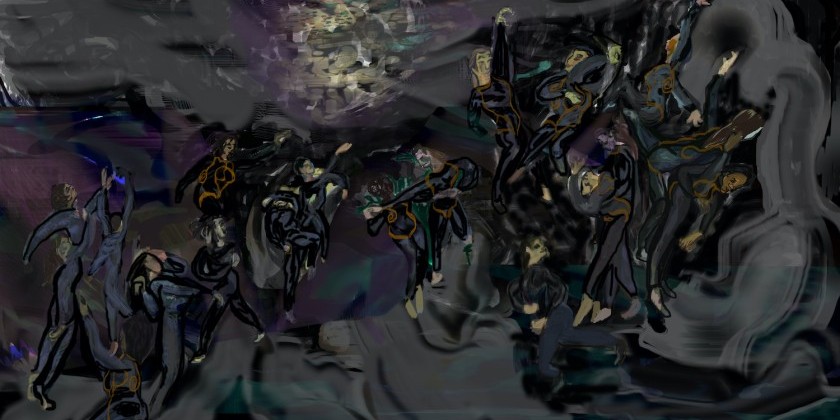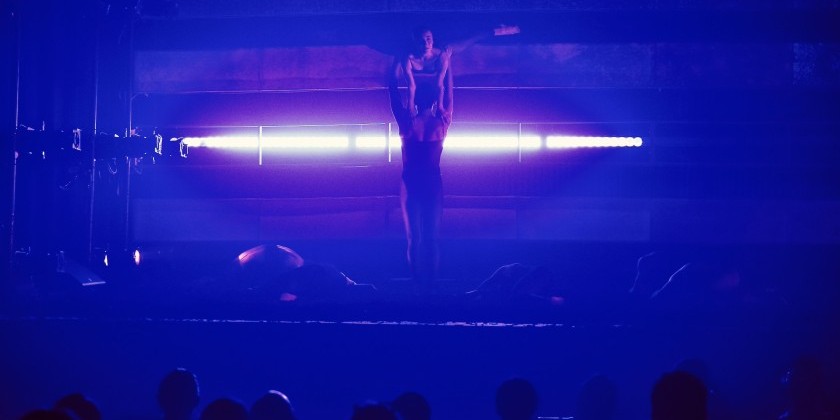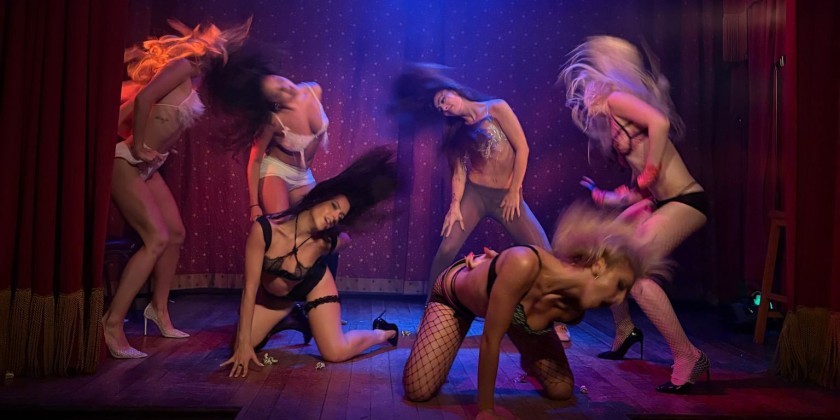AUDIENCE REVIEW: Impressions of RoadWork's "Lobo"
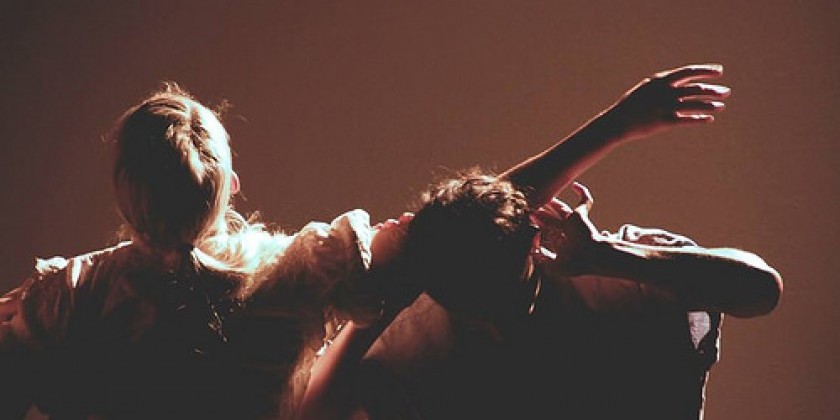
Company:
RoadWork Dance
Performance Date:
September 13th
Freeform Review:
Impressions of: RoadWork Dance’s “Lobo”
Choreography: Kathryn Dean Rhodes
Performers: Hayley Jones, Breegan Kearney, Francheska Lopez, Connie Shiau
Music: Nick Cave, Warren Ellis
Lighting: Kathryn Dean Rhodes
Costumes: Rhodes and Dancers
Special Thanks: Bill Young and 100 Grand
There is a certain obsession that our modern culture has with the “Wild West.” Maybe it's the western movies that we grew up with and cowboy heros such as John Wayne, but the allure of the Old West is often accompanied by a feeling of nostalgia. Brooklyn-based Kathryn Rhodes, fearless leader of RoadWork Dance, grew up on a ranch in Texas, so her connection with this cultural phenomenon has legitimate roots. "Lobo," Rhode’s latest, is based on Carmac McCarthy's "The Crossing.” The company’s first full length work, "Lobo" perfectly captures the mystery, intensity and lonesomeness of the World War 2 Era Southwest.
RoadWork's eclectic and expressive group of women are adept story tellers- they describe to us a world of suffering and corruption, in which hope exists, but lies buried deep beneath the desert sand.The intimate space of Bill Young’s 100 Grand brings us almost face to face with the cast; the dancers are so close that we can see the sweat drip down their faces and hear the slap of bare feet on hardwood floors.
Four figures huddle close together as Hayley Jone's arm traces the line of the horizon. Suddenly, the lithe, elegant women morph into tired horses, trudging through infinite desert. Their backs swayed, their clothing sags down on thin limbs. The dichotomy of stoicism and vulnerability remains present throughout.
Repetition is one of Rhode's signatures. Breegan Kearney crouches on the ground; she slaps the floor with her hand, then catapults into a dramatic backbend, repeating these gestures over and over like a drone. It feels like white noise, the incessant slap of horse’s hooves on desert sand.
In a recurring motif, the four women walk slowly towards us in a straight line and then recede, their expressions hardened and stoic. We experience the cast's slow progression forward and backwards like the passing of time.
Rhode’s work pays tribute to the art of storytelling. Tableaus are like snapshots of scenes, capturing specific moments in time. Over the course of the piece, we get to know the individual characters quite intimately. The cast hovers over the delicate Jones as she lies motionless on the ground. Their faces reflect an understanding of a life that is short and difficult. We imagine a dead, brittle tree overlooking the somber tableau, it’s dried-out branches swaying ominously in the light desert wind.
An arm scanning the horizon turns into a hand covering terrified eyes, then to a pendulum swinging like the hand of a clock. Time passes, the sun rises, the sun sets, the slow wear of age settles in. Denim fades, lace becomes withered and torn. The women's cleanly laundered shirts become sweat stained and dirty.
Three women sit in chairs against the back mirror. Jones begins to softly sing: "They’re gonna hang me in the morning, I’ll never see the sun, they’re gonna hang me in the morning, for all the crimes I’ve done". One by one the others join. Francheska Lopez's face writhes with the torment of her impending doom.
Lopezgoes for broke- her standout solo leaves nothing unsaid. We gasp for fear of her physical well being as she hurls herself about the space, her body splayed in directions we don't normally see bodies go. A mature performer, she has the artistic finesse to push herself to the very boundaries of her own physicality, while remaining in total control.
“Lobo” lays out an environment, and lets the audience fill in the specifics; it provides space for us toweave our own fantastical tale of the wild and brutal Southwest. The 45 minute work leaves us with the thrill of having just watched an epic film. The details may be slightly different for each audience member, but each of us walks away from the piece having witnessed a tremendous story.




